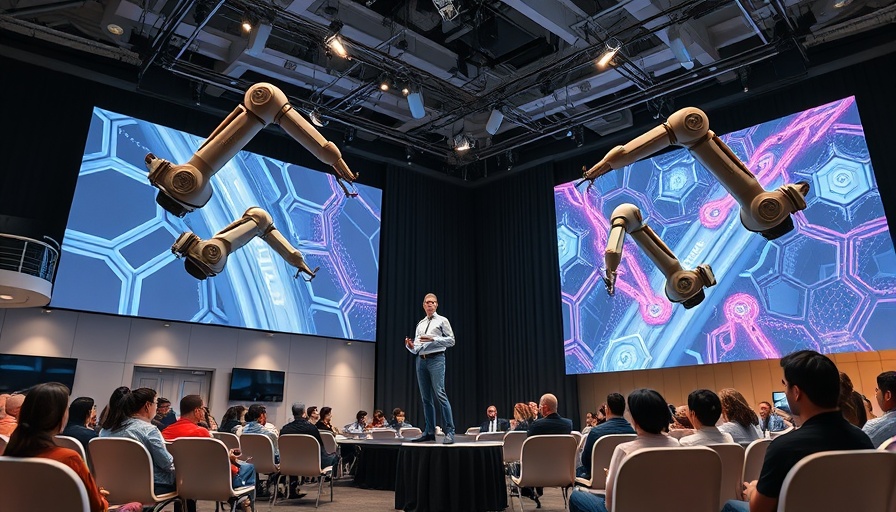
From Buzzword to Everyday Tool: Google’s AI Evolution
The annual Google I/O event serves as a bellwether for the future of technology, particularly in the realm of artificial intelligence (AI). This year, Google showcased a seamless integration of AI into its lineup, making it a natural component of everyday tech rather than something separate or novel. Google’s CEO, Sundar Pichai, proclaimed a vision where AI becomes invisible—a tool users do not necessarily recognize or identify as AI.
You Won't Even Notice It: The Rise of AI as a Transparent Technology
As Google rolls out products like the Gemini app, which combines various generative models in a single interface, it is pushing to embed AI in typical consumer experiences. The addition of features that allow the sharing of screen views and real-time queries indicates a paradigm shift. Users can now engage with technology that adapts to their needs using AI without the need for elaborate descriptions of what AI is or how it works.
Why This Shift Matters for Businesses: An Invisible Revolution
For businesses, the implications of Google’s strategy are significant. Technologies that previously required training or technical knowledge are now user-friendly interfaces that can help boost productivity and decision-making. Imagine having a business assistant that operates behind the scenes, analyzing data and offering solutions without requiring you to understand the mechanics of AI. This aspect of AI could lead to a broader adoption across industries, as companies leverage technology to streamline processes.
Bridging the Gap: The Business Opportunity of AI
Businesses should embrace this challenge and opportunity created by AI's growing invisibility. The question shifts from whether to adopt AI to how to effectively integrate it into current workflows. For instance, tools that utilize AI to handle customer support or drive marketing strategies can offer enhanced engagement without users being aware of the underlying technology at work.
Future Predictions: AI Becomes a Fundamental Component
So, what does the future hold? If trends continue down this path, AI may transition from a novelty to a fundamental component of digital interactions. By 2030, AI could potentially assist in healthcare diagnostics, legal research, and even creative endeavors—much of this work happening unnoticed and taken for granted by users. To prepare for this inevitable shift, businesses must rethink their strategies and embrace AI's transformative power.
Common Misconceptions About AI Integration
Despite advancements, many misunderstand the scope and potential of AI. It is not about replacing human capability, but rather enhancing it. Many professionals fear that AI will render their roles obsolete. However, with AI taking on repetitive tasks, human workers can focus on strategic and creative pursuits, fostering a more innovative workplace culture.
Actionable Insights for Businesses
To remain competitive, businesses must not only understand AI technology but also cultivate a mindset of flexibility and growth. It is imperative to keep abreast of emerging tech trends, invest in training for employees on new tools, and prioritize a customer-first approach that leverages AI to enhance experiences. Conducting regular assessments of technology use can help identify opportunities for optimization.
In summary, Google’s push to embed AI invisibly into products signifies not just an evolution in technology but a revolution in how businesses think about operational processes. As we approach 2030, the real winners will be those who adapt quickly and harness the subtle power of AI.
Call to Action: Embrace the coming AI revolution in your business strategies today—stay informed and flexible to remain competitive in a rapidly changing landscape.
 Add Row
Add Row  Add Element
Add Element 


 Add Row
Add Row  Add
Add 

Write A Comment